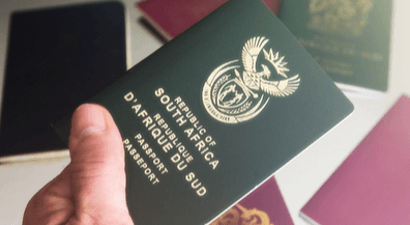Amendments to Refugees Act in 2015, Worrying
By the Immigration Team at Shepstone & Wylie Attorneys
According to the National Immigration Information System (NIIS), there are around 798 080 asylum seekers in South Africa, however only around 210 473 are active according to Home Affairs spokesman, Mayihlome Tshwete. The official reason for this is that the remainder might have abandoned their claims, remain in the country with expired permits or have left the country (the inability of Home Affairs to process their applications timeously, apparently notwithstanding). The recent amendments to the Refugee legislation were apparently passed to deal with the huge numbers of applications that are open, but not active.
Until recently, South Africa was the highest recipient of asylum-seekers / refugees worldwide and the country still remains amongst the top receiving countries in terms of asylum-seekers / refugees in the world.
The South African Department of Home Affairs has stated its commitment to upholding the state’s obligations under the United Nations Refugee Convention. The recent amendment to the Refugees Act, regrettably however, does not reflect this commitment. It seems likely that the Act as amended will land up in front of our Constitutional Court, occasioned by attacks on the constitutionality of a number of the new Sections.
Some of the significant amendments to the Act, which are of concern, include:
- Provisions relating to the disqualification from refugee status and the withdrawal of refugee status, especially for those who have illegally entered South Africa and who have subsequently been recognised as refugees. International law states asylum seekers are not to be punished nor denied the right to apply for and be granted asylum on the basis of their illegal entry into a country (South Africa is a signatory to the the United Nations Refugee Convention);
- A narrow definition of the word 'dependant'. Before the Bill, the word was not defined. The Act previously read “Dependants who accompanied the asylum applicant to the Republic may apply for refugee status…”, allowing for a wide or narrow interpretation of the word, depending on the circumstances of their application. Dependants are now defined as an unmarried minor dependant child (including an adopted child), a spouse married to the asylum seeker, any destitute, aged or infirm member of the asylum seeker's family, and who is included by the asylum seeker in the application for asylum". In addition, "adopted child" or "spouse" needs to have been recognised already as a dependant in their country of origin;
- Dependant children of refugees are no longer granted South African citizenship when born in the country. Their citizenship will follow that of their parents;
- The criminal offences clause seeks to disqualify a person from receiving refugee status if that person is suspected of (but not proven to be guilty of!) committing a crime involving torture and any other cruel, inhuman or degrading treatment or punishment, or a war crime against humanity;
- If that person has committed a crime outside the country which is not of a political nature that is punishable by imprisonment without the option of a fine; or has committed a Schedule 2 crime in South Africa which is punishable by imprisonment without the option of a fine, the person is also disqualified from receiving refugee status in South Africa – which flies in the face of their right to life which should be paramount in granting asylum. Often, the asylum seeker / refugee will face either persecution or death if returned home against their will;
- The right granted to the Minister of Home Affairs, who, after consultation with Cabinet, can cease to recognise the refugee status of any individual refugee or category of refugees or revoke their status – of particular concern is what is in the political pipeline at the end of next year for the thousands of Zimbabwean refugees who have made a new life for themselves in our country.
People who are currently in South Africa on Asylum Seeker or Refugee permits are strongly advised to secure their temporary or permanent residency status within South Africa, and to do so urgently, alternatively face being kicked out of the country. One can only hope that if these Sections of the Act survive constitutional scrutiny and empower the government to withdraw Asylum Seeker or Refugee status, that same does not condone widespread public violence on refugees remaining in the country.
Shepstone and Wylie assist Asylum Seekers and Refugees countrywide with their applications for permanent and temporary residency. The firm does not however specialise otherwise in Refugee work.





